FEATURES • DESTINATIONS
Crafting Tomorrow:
Desa Potato Head’s
Creative Village
Legacy
Words & Photography by The Punch
Stepping into Desa Potato Head, you don't just visit a place; you are transported to a world where originality oscillates through every corner, where the art of living and dreaming combine effortlessly. This creative village is a sanctuary for mind, body, and soul, offering a unique experience where beach and culture blend. It’s a place where wellness is a way of life, attracting icons like Grace Jones and Erykah Badu, who have left their mark here.
Amanda Marcella, who leads Potato Head's sustainability efforts, brings her background in brand management to the table, naturally complementing the principles of environmental responsibility and community empowerment embedded in every aspect of the venue. From the shutters sourced from Java to the handcrafted bricks that make up the Potato Head Suites, the venue showcases a stunning kaleidoscope of colors, celebrating local craftsmanship and the beauty of natural materials.
But Potato Head is more than a feast for the senses. In 2017, they boldly became the first hospitality company in Indonesia to commit to the UN’s Climate Neutral Now initiative, measuring, reducing, and offsetting their greenhouse gas emissions. Recycled materials breathe new life into the space–from discarded bricks to recycled plastic bottles woven into ceilings. The studios’ furniture, born from the hands of Balinese artisans, reflects the blend of innovation and tradition. At Potato Head, sustainability isn’t just a concept; it’s a way of life that’s as organic and colorful as the land it cultivates.
With each initiative, from local artisan support to waste management, Potato Head continues to set a standard for what it means to create 'Good Times, Do Good', having been officially recognized as a certified B Corporation. It’s a place where the essence of Bali is honored, where every brick, every meal, and every action is a celebration of sustainability, creativity, and community.
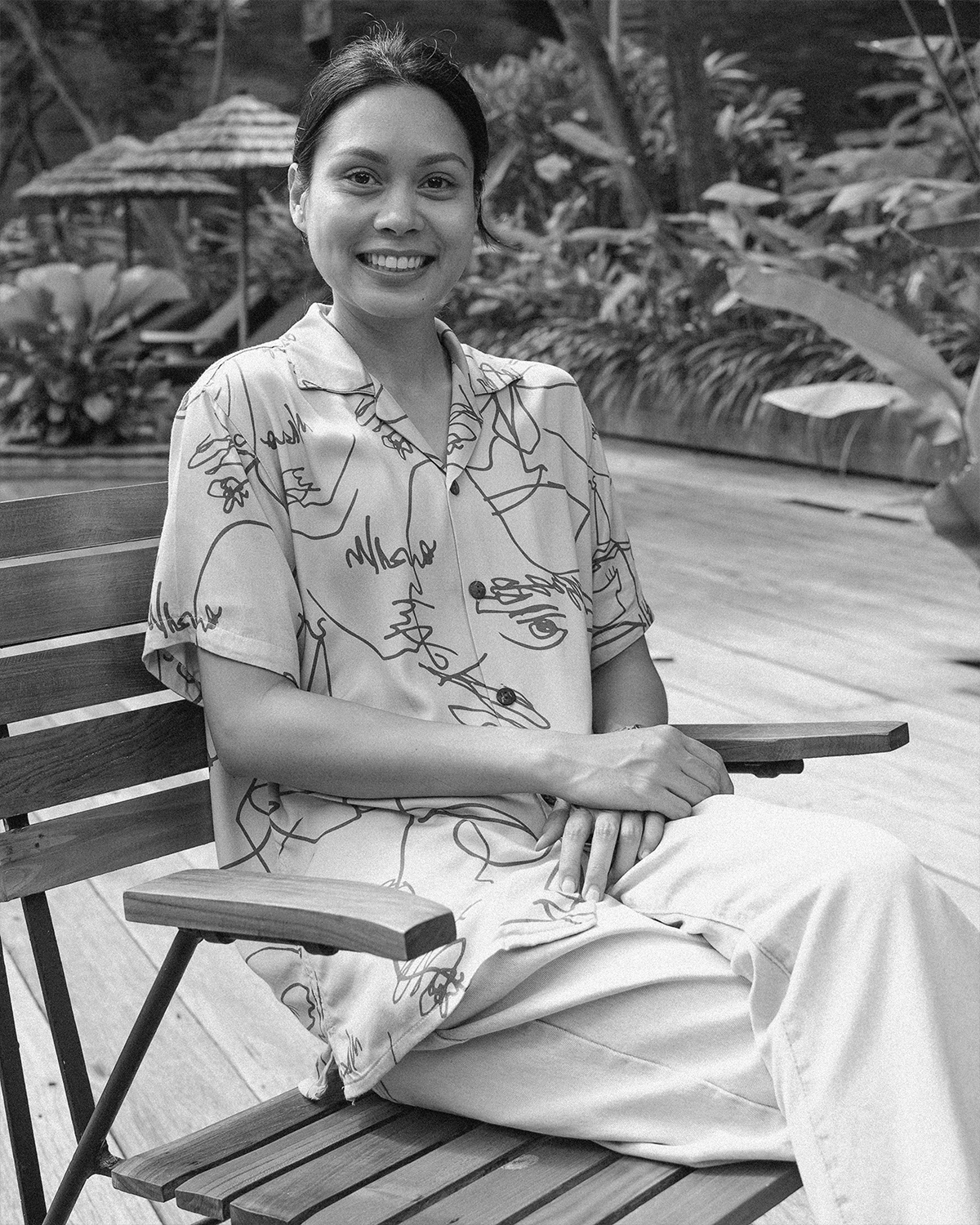
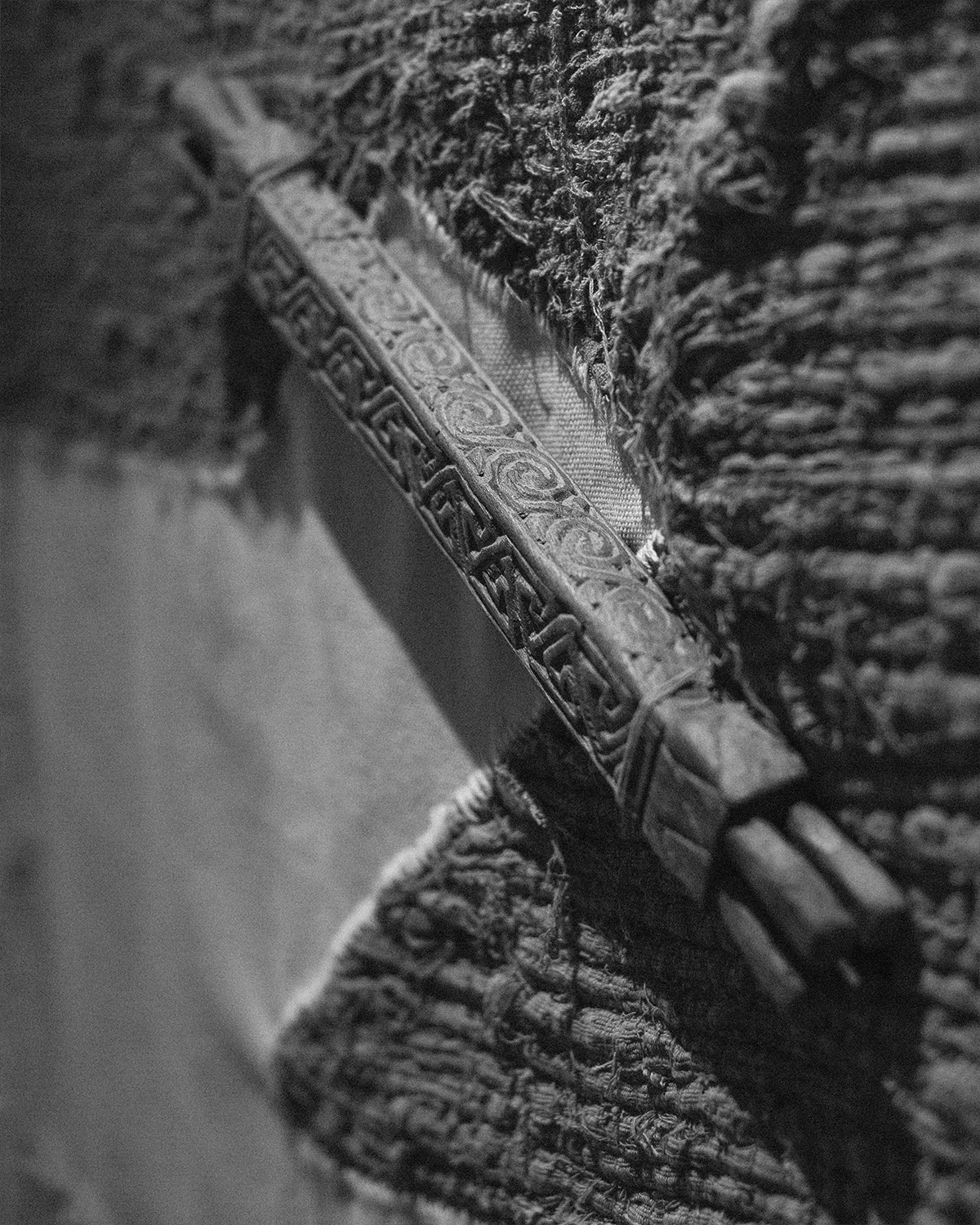
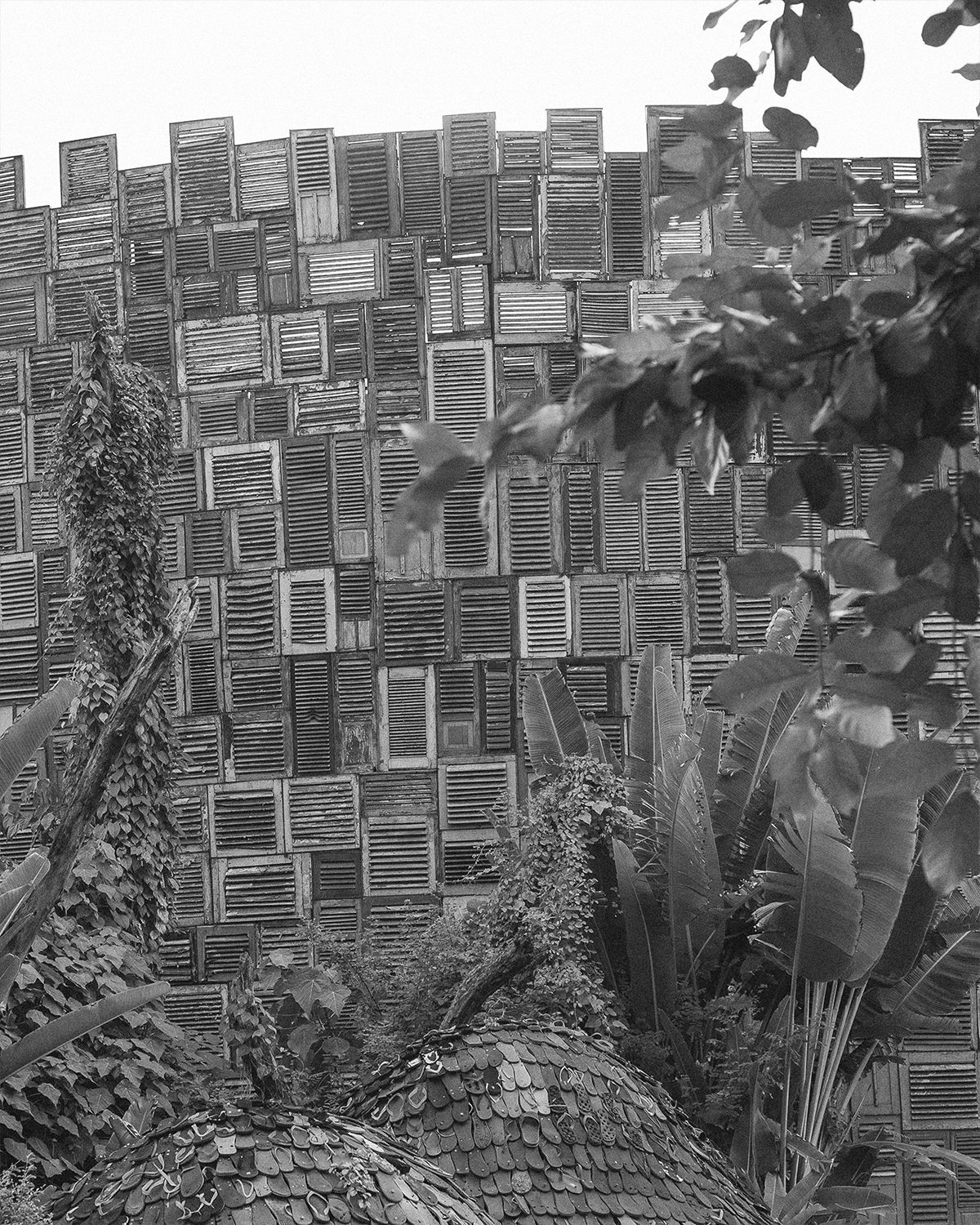
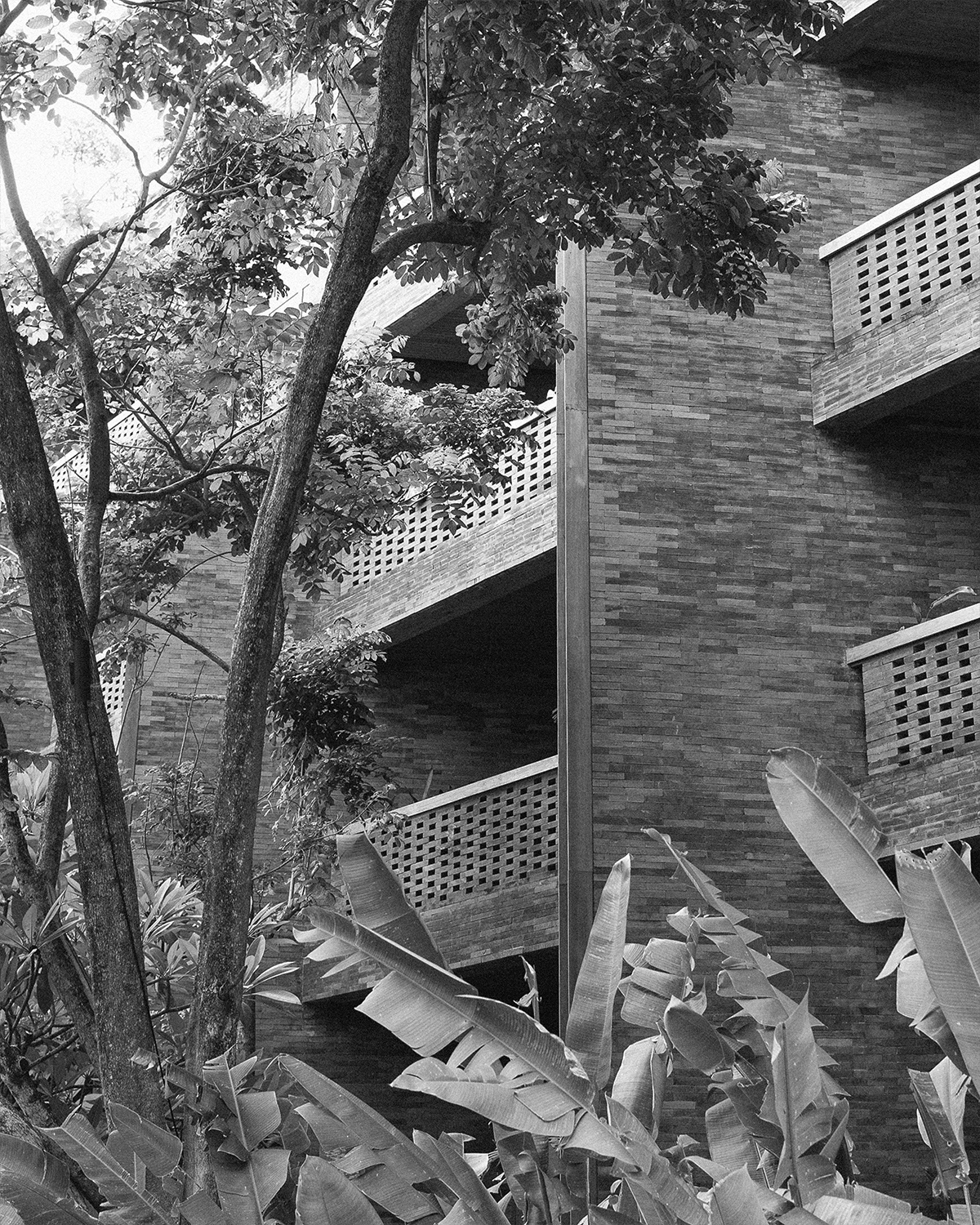
REPURPOSED ELEGANCE & ARTISANAL SKILL
Potato Head Beach Club, which opened in 2010, features an iconic facade made from vintage shutters collected across Java. As the people of Java modernized their homes and replaced their traditional shutters, these discarded pieces were repurposed to create the Beach Club’s unique design. In 2017, Potato Head Suites, formerly known as Katamama, opened with handmade pressed bricks crafted by artisans from two villages in Bali, demonstrating the brand’s devotion to local craftsmanship and unique, natural materials.
In 2019, Potato Head Studios followed suit by incorporating best practices through recycled and natural materials, including study chairs made from recycled plastic produced on-site. Designed by Rotterdam-based OMA in collaboration with Potato Head Design Studio and Indonesian architect Andra Matin, the studios prioritize natural light and ventilation, reducing energy consumption while integrating sustainability into every facet of the design. Their commitment extends beyond materials: a Sea Water Reverse Osmosis (SWRO) plant ensures a steady supply of fresh drinking water, while a Sewage Treatment Plant (STP) reclaims greywater for reuse. Natural ventilation systems harness the wind’s energy, and green roofs cool the building by retaining water.
A CLOSED-LOOP SYSTEM IN RESIDUE
The goal at Potato Head is to achieve zero waste to landfill, and a comprehensive waste management system has been put in place to reach it. Partnering with Eco-Mantra, they implemented the system and conducted regular audits to ensure progress. Waste, they believe, only becomes waste when it ends up in landfills–by properly separating materials, they can upcycle them for other uses. To support this mission, Potato Head collaborates with partners like Urban Compost for composting and other third parties for recycling. They also work closely with suppliers, encouraging the use of reusable containers, like providing small strawberry suppliers with reusable packaging, furthering their efforts toward zero waste in Bali.
CREATIVE RECYCLING: THE WASTE LAB'S IMPACT
The Waste Lab which launched in 2018, addresses the environmental impact of building Potato Head Studios. Faced with waste from construction materials, the team repurposed items like styrofoam and cardboard, creating their first product from repurposed styrofoam. The lab then expanded to develop innovative materials, blending styrofoam with oyster shells and crafting recycled plastic boards. During the pandemic, the Waste Lab continued evolving, making candles from used cooking oil and partnering with designers to transform waste into new products. Its purpose remains focused on reducing environmental impact through creative, sustainable solutions.
THE ROAD TO CARBON NEUTRALITY
Achieving carbon neutrality at Potato Head starts with measurement–knowing the exact carbon emissions from operations, including employee commutes, energy use, water consumption, and the supply chain. Eco Mantra audits these emissions annually, allowing the team to set long-term reduction goals. In addition to reducing emissions, Potato Head offsets current emissions through UNFCCC projects and engages in mangrove conservation, which helps absorb carbon and supports marine biodiversity. Guests can also contribute by opting to offset their carbon emissions when booking a stay, ensuring a systemic approach to carbon neutrality that involves both operations and guest participation.
FARMING FOR UNITY: STRENGTHENING THE COMMUNITY
The Sweet Potato Project began during the pandemic as a way to support the Potato Head staff, who, like many others, were facing challenges during the global closure. This initiative provided an opportunity for the team to work the farm, grow produce, and engage in something meaningful while coming together as a community. The project not only supplied food but also deepened the bonds among staff, who are seen as family. Today, the produce from the Sweet Potato Project is shared with staff and donated to local orphanages, with ongoing efforts like distributing nasi bungkus twice a week to communities in need. The farm’s supply is also used in Potato Head’s restaurant and bar, with plans to expand the farm to create a more sustainable, circular system that benefits both the business and the community.
FORWARD-THINKING KIDS' CORNER
The Sweet Potato Kids program at Potato Head offers children hands-on activities centered around eco-balance and creativity. Instead of the typical kids’ corner, this program encourages children to repurpose materials in fun and practical ways. They learn to make picture frames from recycled cardboard and craft origami with paper reused from hotel operations. The program also introduces bio-based materials, like using leftover turmeric from jamu to create eco-friendly products. Kite-making workshops teach kids to upcycle paper into beautiful creations, all while cultivating an understanding of how everyday items can be transformed into something exciting and sustainable.
ZERO-WASTE ART COLLABORATIONS
At Potato Head, collaborations with artists create pieces that not only draw interest but also spark conversations. One example is the “5000 Lost Soles” installation by German artist Liina Klauss, crafted from sandals collected along the beaches of Petitenget and Pererenan. Deliberately curated for color, this artwork reimagines waste to beauty, urging viewers to rethink consumerism and its impact. A similar vision is personified in the Pointman River Warrior statue by Futura 2000, a New York graffiti artist, constructed entirely from recycled plastic boards, and made in partnership with Yayasan Kakikita. These collaborations blend international creativity with local expertise, merging traditional and modern techniques to promote both global and local talent.
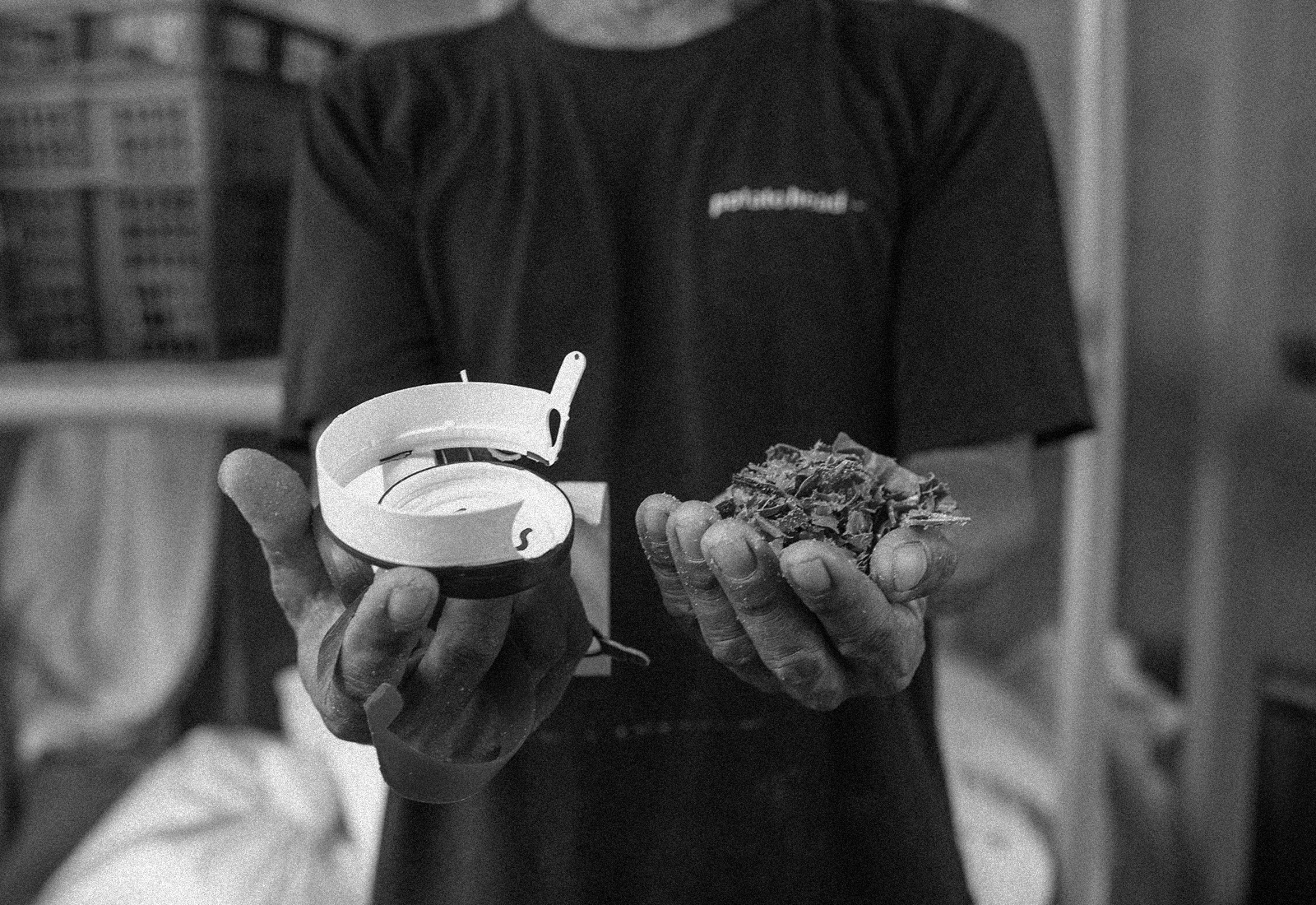
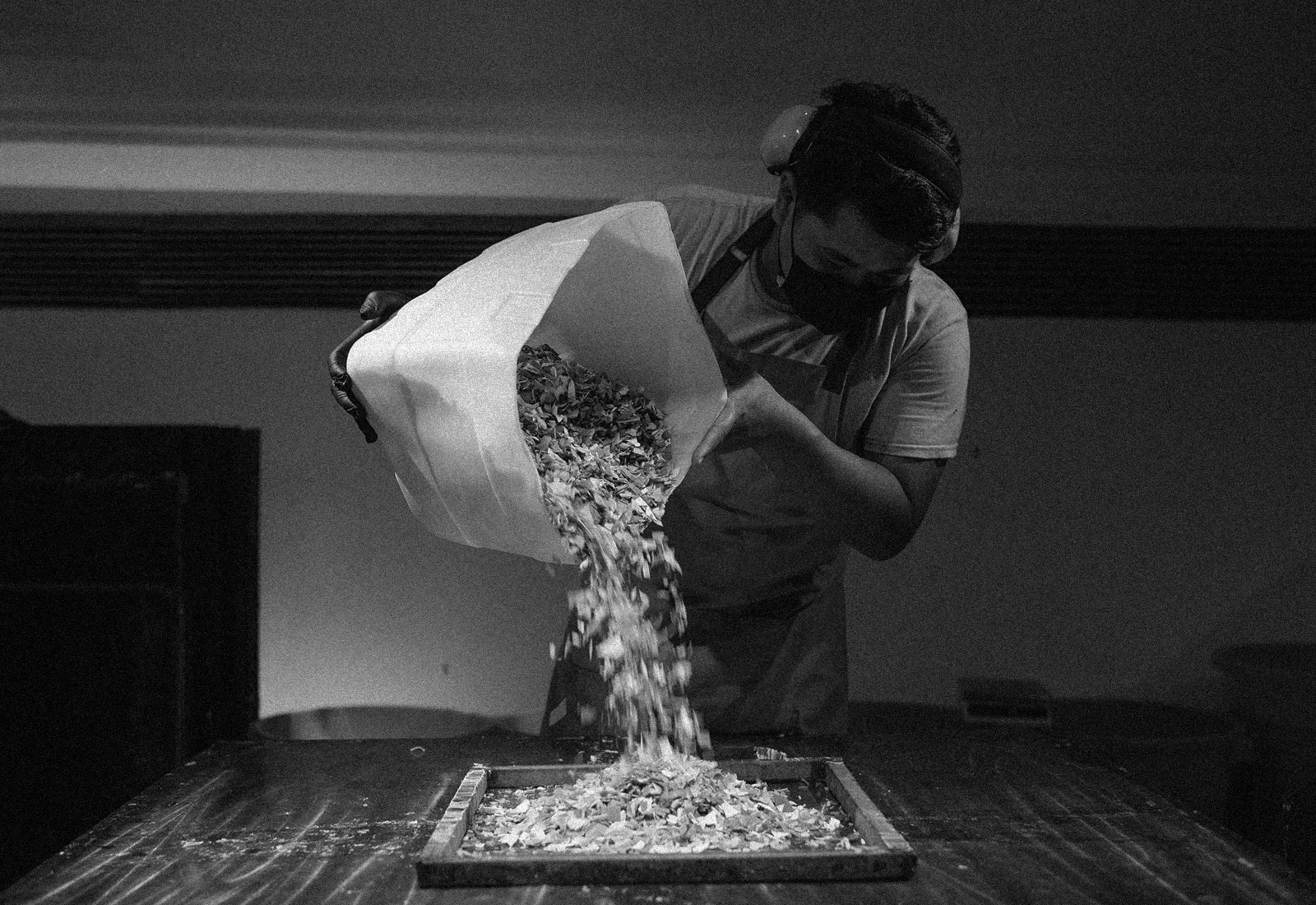
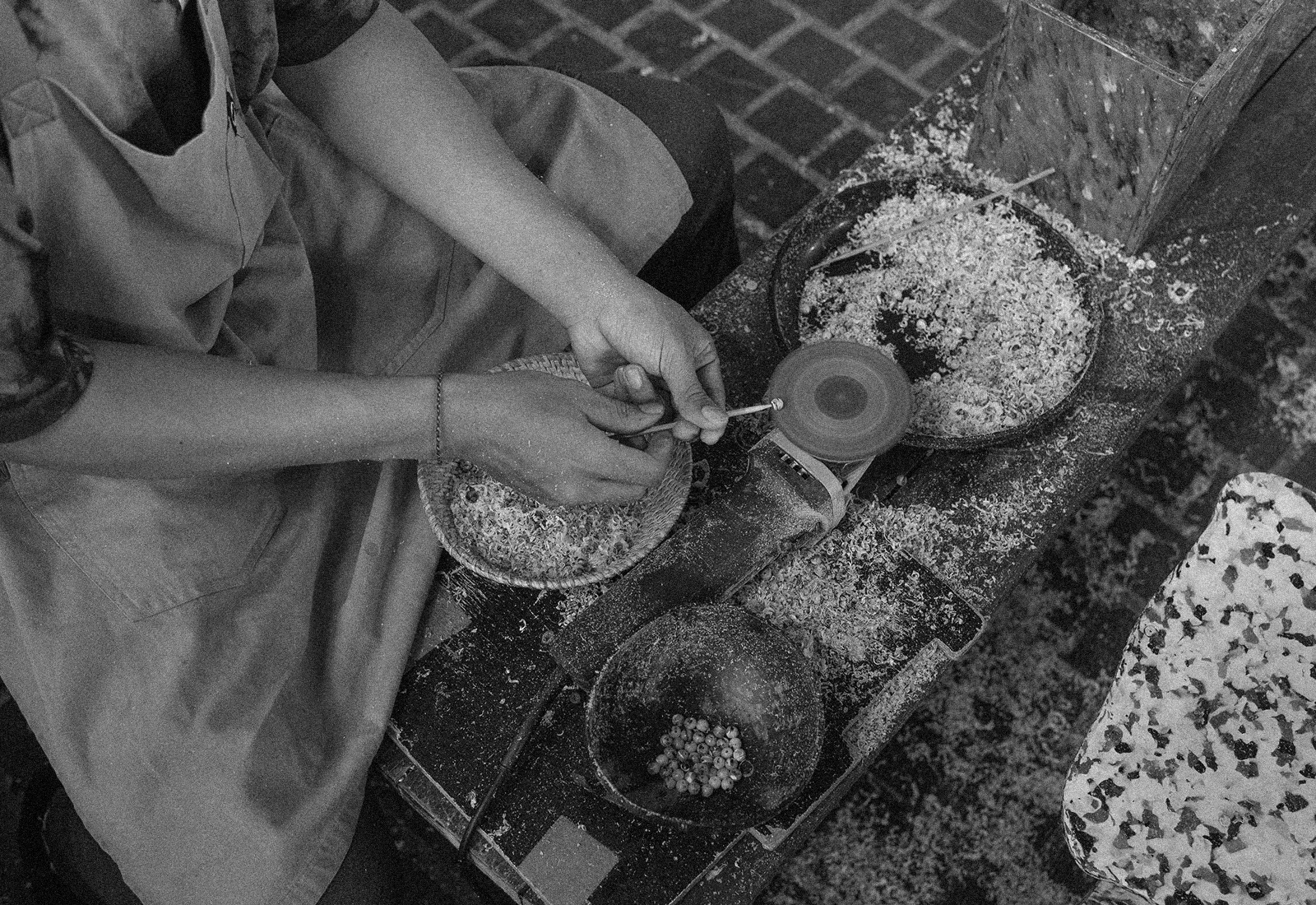
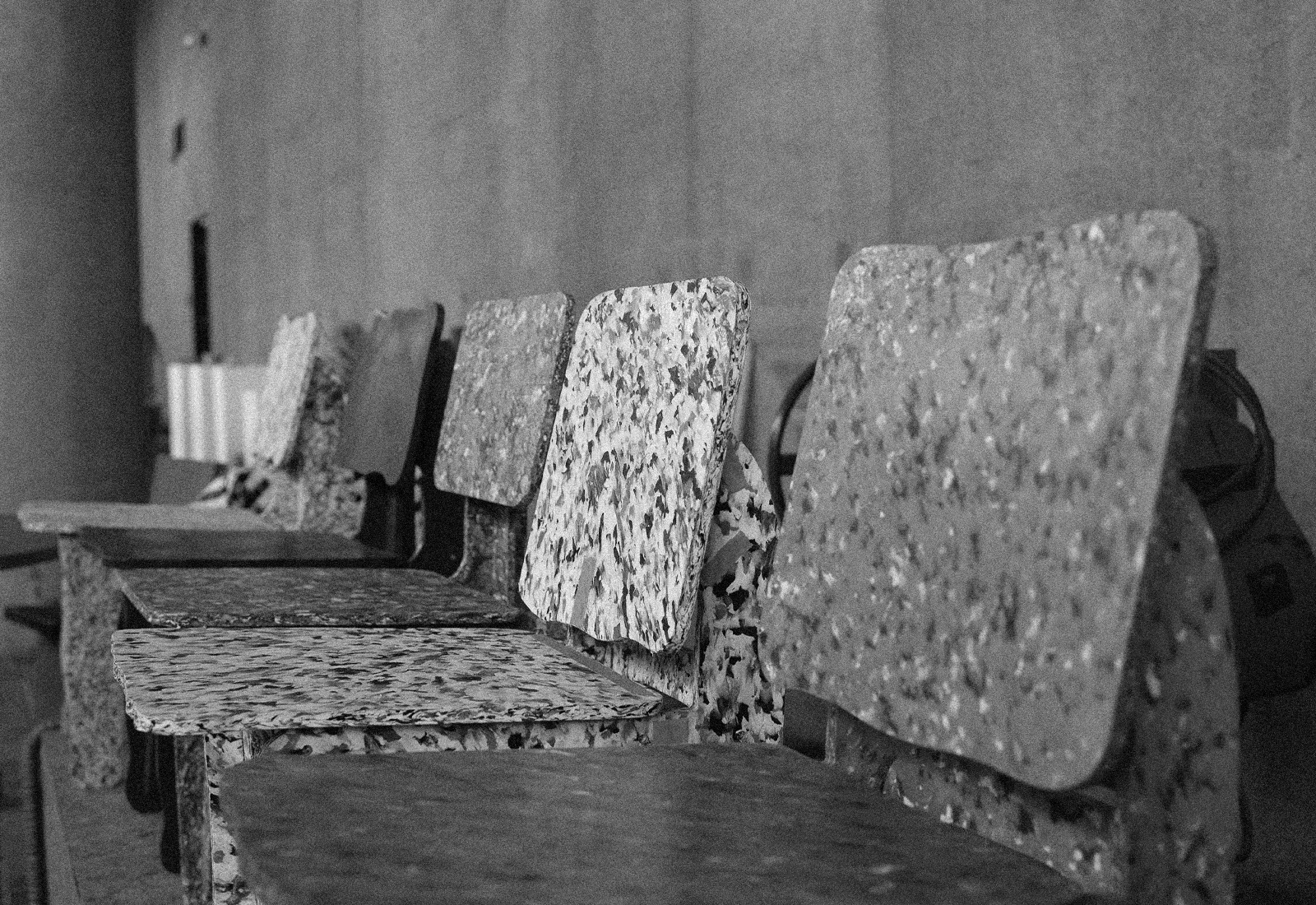
EMPOWERING LOCAL COLLABORATIONS
At Potato Head, connecting with the local community feels instinctive, as collaborations with local suppliers, farmers, small businesses, and artisans prosper. These partnerships help strengthen the community. Beyond that, Potato Head opens its doors for community events, offering a space for meaningful gatherings. Last year, The Punch Gala was held on-site, along with several events hosted by local associations. The goal is to provide a welcoming space, always ready to support Bali’s creative community initiatives with genuine care and intention.
BEYOND POTATO HEAD: A COLLECTIVE REVOLUTION
With exciting new works on the way, Potato Head is working on a new initiative under the Sweet Potato Project Foundation. It’s a waste facility designed not just for the brand but for other Bali businesses as well. Partnering with local companies, the goal is to set a high standard for waste management, not to compete with other collectors. Businesses that join must stick to the same system used at Potato Head, with close monitoring to ensure compliance. The Community Waste Project, set to launch in October 2024, aims to provide a simple, scalable waste solution that can inspire broader change across Bali, setting a new benchmark for sustainability.
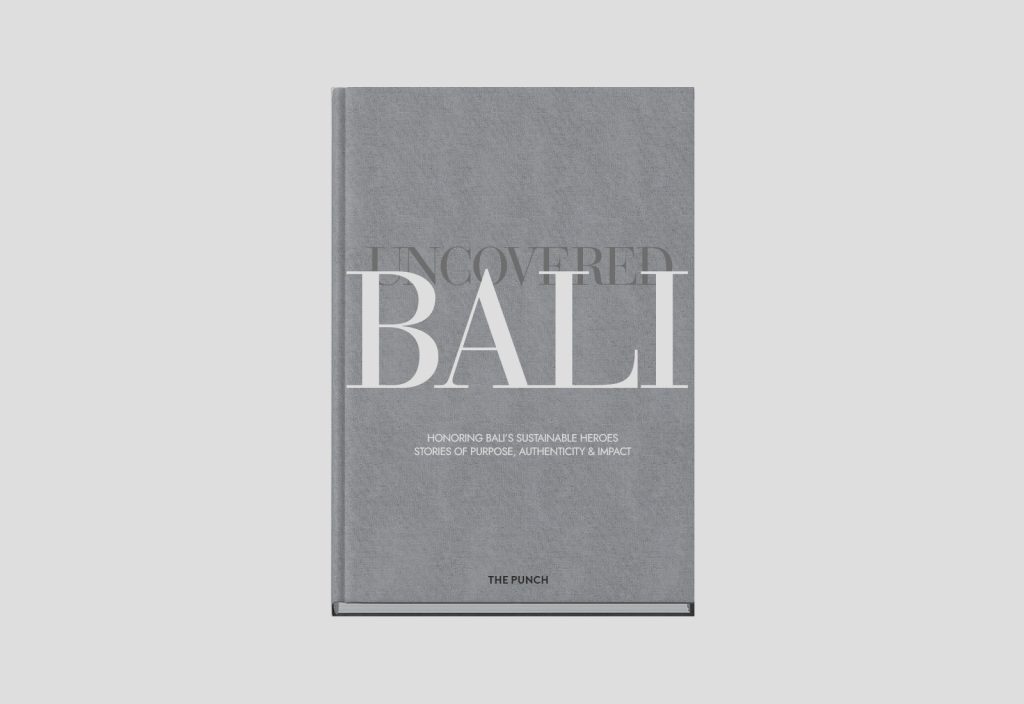
EXPLORE THE FULL STORY IN UNCOVERED BALI BOOK
Uncovered Bali is a collective project showcasing the sustainable journeys of carefully selected Bali businesses to a global audience. Each story highlights the unique impact these enterprises have on preserving Bali’s cultural and environmental heritage while driving positive change. Through this project, we aim to inspire global leaders, travelers, and communities to embrace more sustainable practices and appreciate the powerful role that local businesses play in shaping a better future.
EXPLORE THE PUNCH

